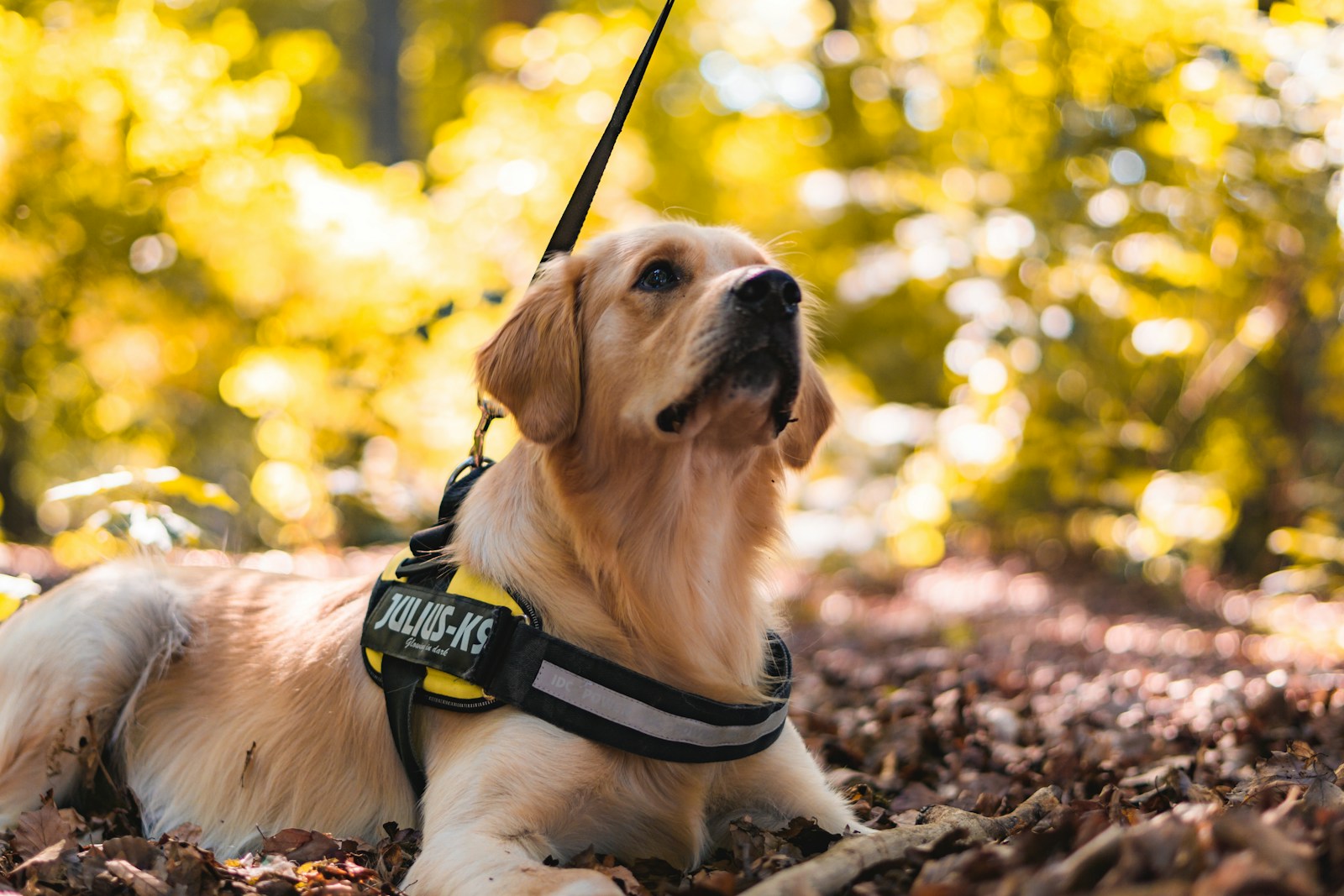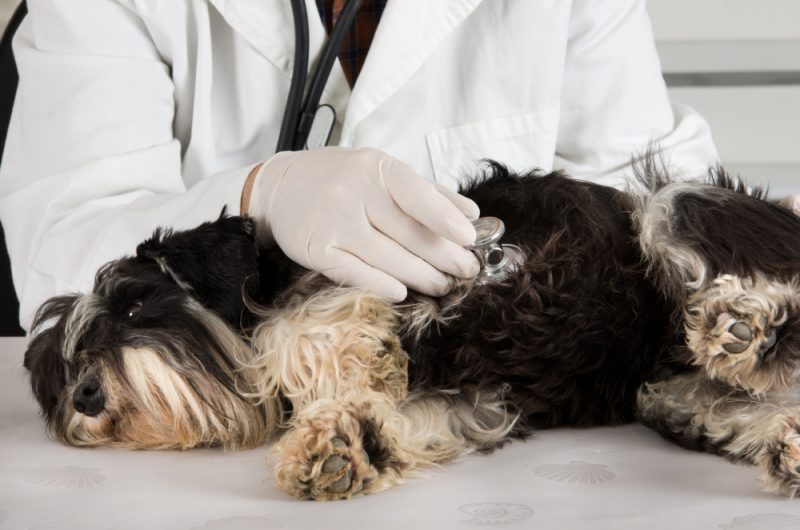An allergic reaction can vary in severity from sufferer to sufferer. Mild reactions can include hives, itchy skin, a stuffy nose, and watery eyes, while more severe reactions can include anaphylaxis. Anaphylaxis is life-threatening and requires emergency care, and it can be triggered by tiny amounts of the allergen that cannot be seen by the naked eye.
Thankfully, dogs have an incredible sense of smell and can pick up the slightest traces of allergens in their environment when properly trained.
Allergy detection dogs are so important because they can save people’s lives. They are trained to scan food, items, and areas for potential allergens and then alert their owners. They are also trained to get help for their owners if they have an allergic reaction. Having an allergy detection dog allows sufferers to live a more normal life without having to constantly worry about allergen exposure.

The 5 Steps for Getting an Allergy Detection Dog
1. Determine Whether You Qualify
There are certain criteria you will need to meet to qualify for an allergy-detection dog. Be aware that these criteria can vary depending on the organization that you use. You may be eligible if:
- You have been diagnosed with anaphylactic allergies by a physician.
- Allergy tests have been taken within the past 12 months.
- Your anaphylactic reaction occurs with contact with the allergen.
- The handler will be 14 years old or older.
- The handler is mobile and physically able to control the service dog on their own.
- You can commit to the lifetime responsibility of caring for your service dog.
If you do not qualify or do not have the funds to commit to taking on another dog, you may have the option of training your existing dog to detect allergens and working closely with a reputable allergen trainer.

2. Fill Out the Application Form
Depending on the organization you apply to for an allergy detection dog, you will need to go to its website and download its application form. Most application forms will ask for your personal information, how you can be contacted, whether you or a family member are allergic to dogs, what you’re allergic to, questions about previous anaphylactic reactions that you’ve had, your physician’s information, and references to contact to determine the suitability of service dog placement.
Some companies have various training options. One option may include helping you find a puppy to train, working with you as the puppy is trained, and then certifying them once they are fully trained. Another option may include online self-training courses, whereby a trainer will assist you with training your dog virtually.
3. Mail the Form
This next step is pretty straightforward. Once you have filled out the application form and attached your physician’s letter confirming that you do suffer from severe allergic reactions, you need to mail it to the appropriate organization. You will be able to find the address on the organization’s website.

4. Wait for a Response
It might take some time for the organization to get back to you. During this time, the staff will be reviewing your application and contacting your references. They may also try to set up a call to ask you a few more questions. If all goes well, they will notify you that your application has been accepted. They will then send you a registration packet.
5. Confirm Your Spot
The organization will receive your confirmation and give you a space in the class once you send in your registration packet and deposit. Of course, all the required payments will also need to be paid in order to keep your spot.


What Are the Cons of Getting an Allergy Detection Dog?
Getting an allergy-detection dog is a long and expensive ordeal. Service dogs can cost different amounts depending on their level of training. However, you’re unlikely to find an allergy-detection dog from a reputable organization for less than $10,000. Dogs with higher certification levels or that are more seasoned may cost much more. That said, these dogs come at a high price, and unfortunately, most insurance companies don’t cover the cost.
Another downside is that it can take a year or longer before your dog completes their training and receives their certification. In some cases, a dog will have to drop out of the course and won’t receive their certification because they may not be suitable for the job. In these cases, the process will need to be restarted with another dog that is a better candidate. This extends the length of time you’ll have to wait to get your dog.


Conclusion
Allergy detection dogs are extensively trained to pick up on the tiniest amounts of allergens in an area, in food, or on objects. Some are also trained to help the owners if they are having an allergic reaction. If you have severe allergic reactions to certain allergens, an allergy-detection dog might be very helpful.
If you qualify for an allergy detection dog, you can get one by applying to the organization of your choice. You’ll need to fill out its application form and mail it back. It might take some time before you hear back from the organization, but once the staff has reviewed your application, they will notify you of your acceptance and send you a registration packet.
Featured Image Credit: BublikHaus, Shutterstock


















